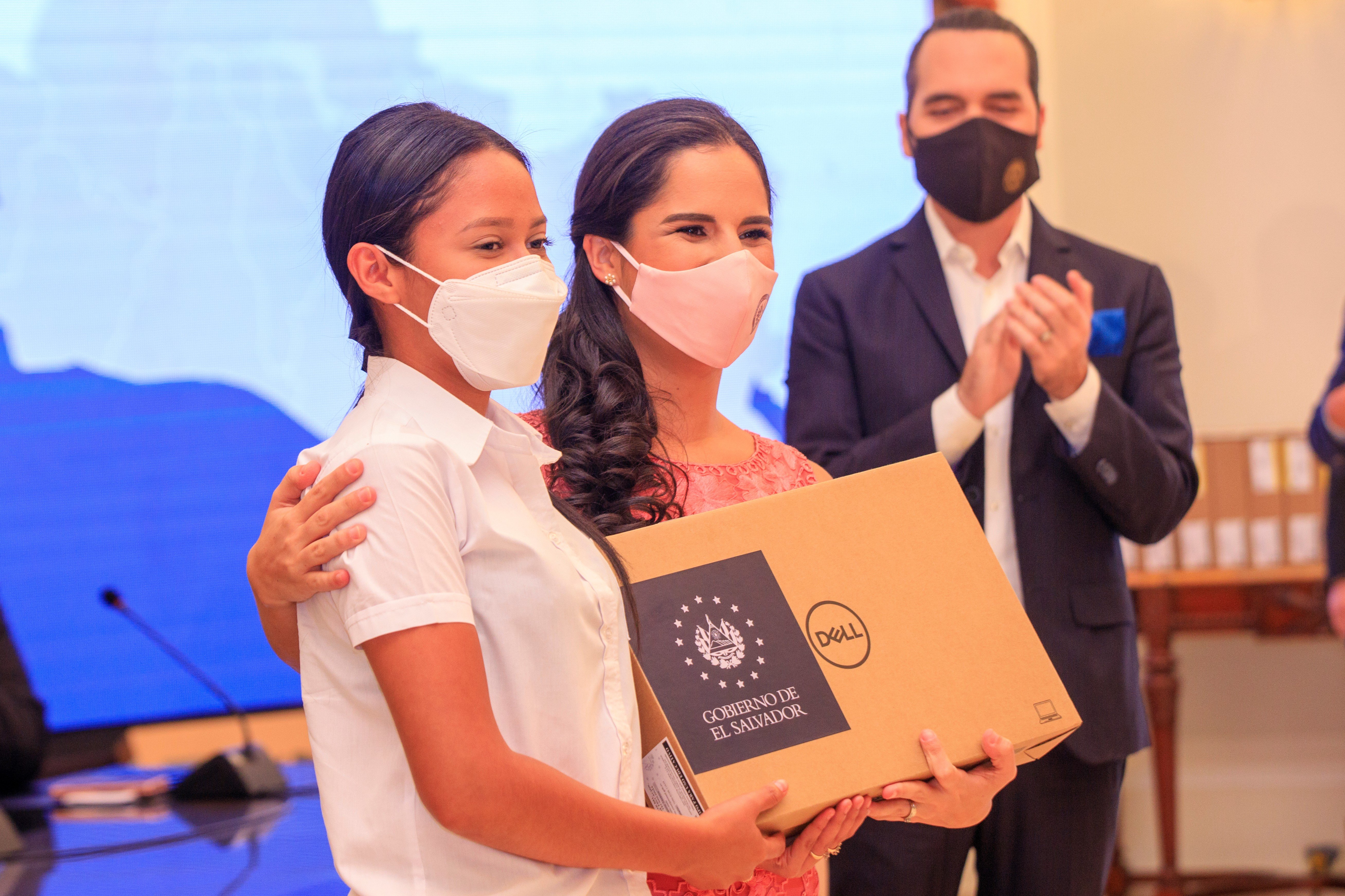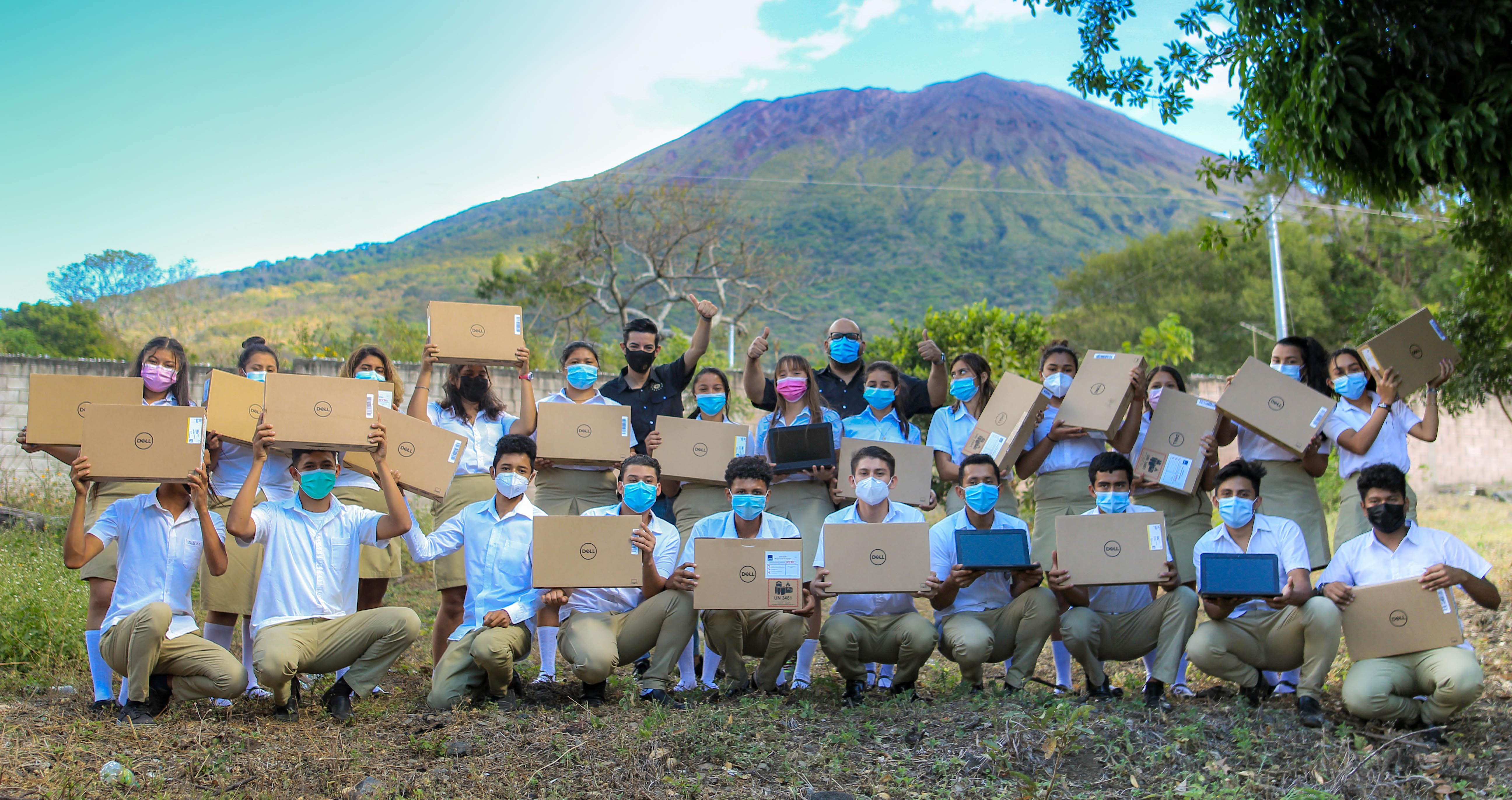For decades, El Salvador has suffered from the lack of access to technological resources for its citizens and students. The COVID-19 pandemic made access to education even more difficult for many young people who, as a result of stay-at-home restrictions and the suspension of in-person classes, experienced new challenges to their schooling: taking classes from their cellphones, without an internet connection and disconnected from their peers.
But a new era of technological development began at the beginning of 2020 with the country's Digital Agenda 2020-2030, a tool that would allow El Salvador to chart the way for a true digital revolution.
President Nayib Bukele created an Innovation Department within his administration, and it became the unit in charge of promoting innovation and digital transformation in El Salvador.
The department is tasked with tackling one of El Salvador’s main problems for years — maintaining a quality education system despite a limited level of connectivity infrastructure. More than half of the population remains disconnected and a fairly high percentage does so through prepaid cellphone plans. Citizens have limited, if any, access to real broadband services.
With the COVID-19 pandemic, the whole world had to adapt to changes and accelerate different processes and solutions. El Salvador decided to prioritize its health and education systems, and the Innovation Department, as the unit in charge of new technologies, worked tirelessly to adapt all educational programs to virtual modes.

Through an agreement with Google For Education, El Salvador obtained 1.3 million licenses for students and teachers in the public sector of the country. As these are new tools for most teachers, they received training in the use and management of Google Classroom, a web service for creating, distributing, and managing assignments, and more than 30,000 public school teachers graduated.
"Our mission is to guarantee access to education,” said Secretary of Innovation Vladimir Handal. “Undoubtedly, we are setting a precedent, never seen before at the country level."
The commitment to the digital transformation of the entire education system is one of the main lines of action outlined in the Digital Agenda. Teachers have developed digital competencies in the production of digital educational materials, monitoring of academic processes, and the design, development, and use of rubrics related to the evaluation of learning objectives.
The Government of El Salvador aims to become the first country in the world with 100% of its students active in the Google Classroom platform. The country’s educational system is gradually becoming digital.
Under the coordination of the Office of the First Lady of the Republic, Gabriela de Bukele, and working together with the Ministry of Education, El Salvador began delivering technological equipment for students and teachers in the public sector.
More than 70,000 laptop computers have been delivered so far, and the goal is that 100% of students and teachers have their equipment - 1.2 M students and 36.000 teachers. Each of the computers comes with accessories, software for the development of classes, updated drives, and 10th generation Intel processors.

They also have video editing tools, Microsoft Office accounts, technical support, Google Classroom, and other platforms for the development of online classes.
The kits delivered to high school seniors are also equipped with an English language course, which they take through the educational platform PLATZI. When they complete the course at the end of their school year, the young people will obtain Level B2 language certification, with which they will have the ability to understand, speak, and maintain an advanced conversation in English with native speakers.
These innovative tools, however, are only as good as the internet connection that allows students and teachers to use them at scale, and digitizing the education system has been a challenge. But through strategic alliances with the country's telecommunications companies, the Government of El Salvador was able to implement its "Data Plan for Internet Access" project, so that all students and teachers can develop their classes. More than 700,000 users nationwide received this benefit in the first month of the announcement.
Parallel to the transformation of the educational system, the government is also working on connectivity and broadband infrastructure, planning the expansion and equipment of a backbone network with 1,061 kilometers of fiber optics. This includes developing the connectivity and infrastructure for 4,780 schools in coastal areas- usually remote places that are difficult to access, and with lack of infrastructure- as well as the connection of more than 500 hospitals and health centers.
Once complete, the entire country will be connected and have quality access to the educational system, which had been forgotten for all these years.